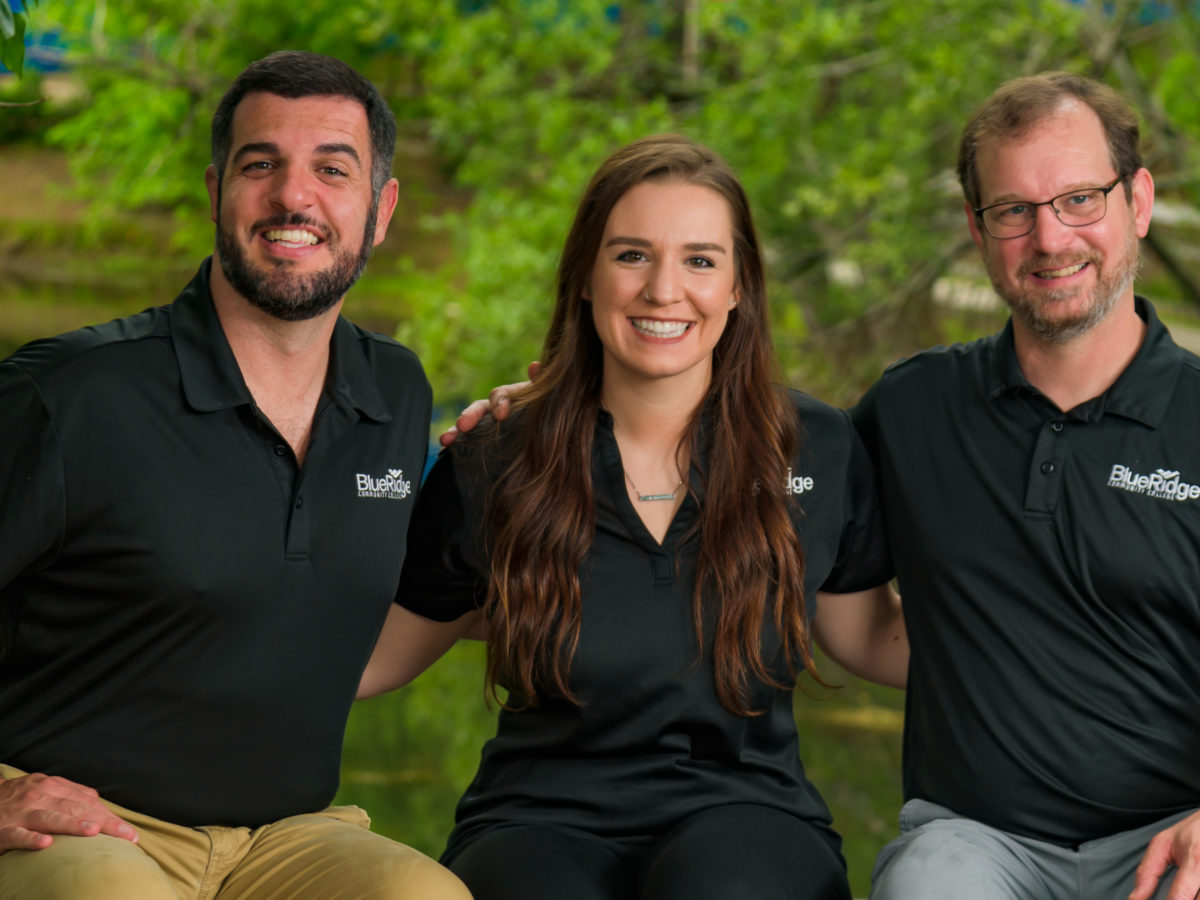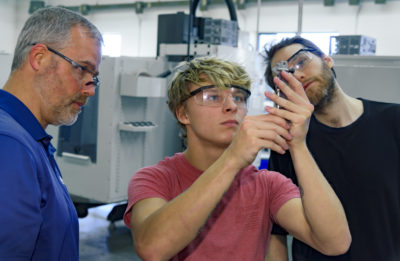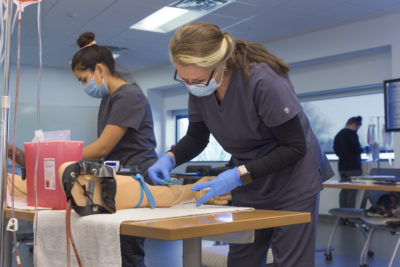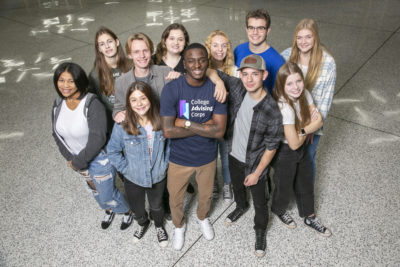

Every student who graduates from high school should have a plan for what’s next. And, if there’s no pathway forward in place, then we — high schools and community colleges, working together — have failed the student. It’s our job to ensure that high school students and graduates are given all the tools they need to transition into a successful career. Career coaches are a good place to start.
Blue Ridge Community College first worked with schools in Transylvania County to get a shared career coach on board. We applied for funding and were approved. After a positive experience, we went on to work with Henderson County Public Schools to hire two more career coaches. Every public high school in our area is now served by one of these three coaches. We value what our career coaches do and how they work with students and parents, alike, to achieve their long-term goals.
Quite simply, career coaches are the most significant workforce development strategy that has been supported in a long time in terms of developing a workforce pipeline for our communities.
A problem with a solution
The American Institutes for Research reports that while the majority of U.S. students graduate from high school, postsecondary education challenges remain. Not enough students are enrolling in higher education programs, and not enough students are graduating with a credential that translates into better employment opportunities and higher earnings. This is concerning because the vast majority of livable-wage jobs today and moving forward are expected to require at least some postsecondary education or training certificates.
While there are multiple reasons for this, one of them has to do with students and families not knowing about their options. Enter career coaches. Career coaches work alongside guidance counselors to provide career coaching to every high school student. They are there to support student and parent goals and, together, to consider and navigate options.
As a community college, our job is to also prepare students for their next step, no matter their desire to attend a four-year university, a two-year college transfer, technical career training, or entering directly into the workforce or military. We encourage students to explore all of their options.
Career coaches can help students find their passion and also help to evaluate and identify the best way to get there (e.g., best college, major, classes, and internships). They can also help to develop a strategic plan to guide them through their last years in high school and help with interviewing and resumé writing skills. Most importantly, they can often reduce anxiety and confusion about college choices and future careers.
Making a local economic impact
Quite often, students would love to find a good-paying job right here at home, but they’re unaware of all the possibilities available. For example, one of Blue Ridge’s programs, the Career and College Promise Program, is set up to help eligible junior and senior high school students to take transferable, tuition-free classes while still enrolled in high school. It also provides structured transfer, career, and training opportunities. These college transfer classes carry the same weight as high school Advanced Placement classes.
And there’s also Blue Ridge Career Pathways, a collaborative partnership that links business and industry with secondary schools, career technical centers, and Blue Ridge Community College. Its mission is to provide for advanced skill education and training in technology-related careers for high-skill, high-wage jobs that are in demand.
So, career coaches and programs such as these don’t just help students directly. They have an overarching economic impact on the community at large. They’re helping to educate and train people who are about to enter the workforce, so the community benefits too.
Keeping an eye on the future
Now more than ever, we believe it is time for students and families to seek the guidance of a career coach. Why? The pandemic created an isolated environment for many and made face-to-face interactions challenging or absent. It also forced students into an academic routine that mostly involved computers and smart phones. It’s time to re-engage.
Career coaches are ready to step in and help to build a strong and confident workforce that’s ready to take on what comes next. Let’s rebuild the workforce pipeline together — one career at a time.




